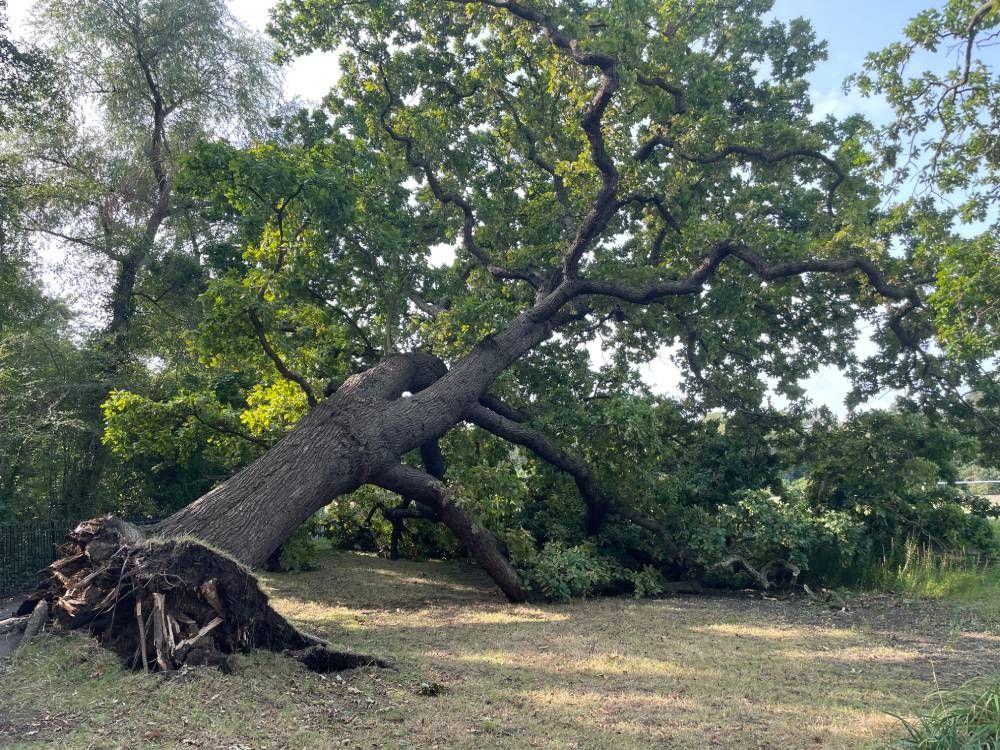Tending the Flame
Look Up, Not In

There’s a stanza in the Leonard Cohen hymn, “You Want it Darker,” that goes,
Magnified, sanctified
Be the holy name
Vilified, crucified
In the human frame
I have this song in one of my playlists, partly for Mr. Cohen’s voice, partly because I fantasize about being able to play bass guitar, but mostly for the richness of the summary of the Christian Gospel in those four lines. Then, tragically, Mr. Cohen reduces that life-giving truth to ashes in the next stanza:
A million candles burning
For the love that never came
You want it darker
We kill the flame
As I understand it, Mr. Cohen wrote this song, and the album of the same name, while knowing he was dying back in 2016. (If you’re curious and decide to listen to the song, the word “Hineni,” is Hebrew for, “here I am”—the same phrase Abraham uses in responding to the Lord’s calling on him to go sacrifice Isaac in Gen. 22:1.) Part of me grieves for Mr. Cohen. He had enough of an understanding of the Gospel to be able to articulate it, but not enough faith to trust it; he had some knowledge of Jesus and His cross-work, but then seemingly misinterpreted Jesus’ good purpose.
The result of Mr. Cohen’s misinterpretation and/or lack of faith in Christ is that he then decided to snuff out the flame—the very thing that God implants in the heart of those who look on Jesus and believe (2 Cor. 4:6). And with that move, I let out a deep breath and wonder about the nature of faith and how it gets tested over the course of a lifetime (see the rest of 2 Cor. 4).
Christians fully expect our faith in God will be tested along the way. Our holy Scriptures are honest and straightforward about this. I also remember reading John Bunyan’s, Pilgrim’s Progress , as a child, but at the time had no idea what a “slough of despond” was until I fell into one when I was thirty years old. Same with “doubting castle” in my forties. As Pilgrim’s Progress so clearly illustrates, there are many hazards to Christian on the way to the Celestial City.
In my work as a counselor, I get a front row seat to many of the ways people’s faith in Christ is challenged. Back in the March edition of this newsletter (“The Speed of God, part 2”), I observed that some people’s trust in Jesus fails when they grow up in a Christian home where a corrupted version of the Gospel is taught. When that child then grows up and begins to think for themselves, the incongruities of belief and life create a crisis that some don’t survive.
Other ways I’ve witnessed faith in God being assaulted include trials such as the unexpected death of a loved-one, prolonged suffering, unanswered prayer, and now more commonly, prosperity. We should also not forget Satanic or demonic attack. I’ll also observe it’s not getting any easier for people to come to faith in Christ and stay in the faith. Historians have well documented the rise in atheism in the last century due in large part to the seeming absence of God in the world.
“With respect to the question of origins, developments in biology (the theory of evolution) and physics (such as quantum theory) furnished humankind with all that was needed to explain, at least in principle, cosmic and human origins. God, we might say, was out of a job—our progress in knowledge directly proportionate to the narrowing gaps left for God to fill” (Joseph Minich, Bulwarks of Unbelief: Atheism and Divine Absence in a Secular Age , p. 12). Minich goes on to detail how neuroscience is now working to better understand how the brain works, so much so that there’s a reach for scientific explanations into the immaterial world of the mind and soul.
Minich’s book, which I’m picking my way through, makes the case that not that many centuries ago it would have been hard to be an atheist due to a lack of knowledge about the inner workings and origins of the material world. Even if a person was an atheist back then, one would have stayed in the closet for fear of persecution. But now the tables have turned. God is no longer necessary. We have knowledge, we have wealth, we have the technology to save ourselves. Which, for an increasing number of people, renders the Christian Gospel both unnecessary and uninteresting.
Take heart, dear Christian, and regularly tend to the flame of faith in Christ which is in you. Remember that every belief system, every worldview, require degrees of faith or trust, and that they have their own doubts and unanswerable questions. Further, there are other ways of knowing things that are outside the realm of science—like history, law, sociology, and philosophy. All of these are tools to use to grow your faith in Christ. Jesus and his resurrection, for example, are not reproducible (scientific) but a strongly evidenced reality (historical).
I often use music as an instrument to fan the flame of faith in Christ, so let me end this post with another song. My wife, older son, and I returned recently from hiking out in the Southwest desert—mostly in the circuit of the Grand Canyon, Sedona, and Page, Arizona. After biking and hiking along the rim of the Grand Canyon, after sitting atop a mesa in Sedona to watch the sun go down and the stars come out, we found ourselves on Highway 89 driving up to Page when we came to Antelope Pass Vista. It’s an overlook of a breathtakingly wide valley north of the Grand Canyon and a place you could sit all day in reverence.
As we stood there in quiet taking it all in, my older son spontaneously said, almost in a whisper, “I feel small.” That’s all he said, and that’s all that needed to be said. It was the culmination of all the stunning wonders we had seen that week. No question, non-Christians can also experience a sense of awe and even transcendence in such moments. But the Christian faith is not man-centered (we don’t look within ourselves for hope and answers, and we don’t work our way into a relationship with the divine). Christians look at moments like this as yet another opportunity to fan the flame of faith implanted in us through the Spirit of Jesus Christ. We look up, not in.
When we got back in the car, I said to my wife and son, “Before we leave here, let’s listen to this.” I synced my phone to the car’s radio and played Sara Groves’ ninety-second version of, “For the Beauty of the Earth.” And that little breath fanned the flame just a little stronger.
For the beauty of the earth
For the beauty of the skies
For the love which from our birth
Over and around us lies
Lord of all to Thee we raise
This our hymn of grateful praise
Because ultimately, Christians are protected by the power of God through faith for a salvation ready to be revealed at any time (1 Peter 1:5).










